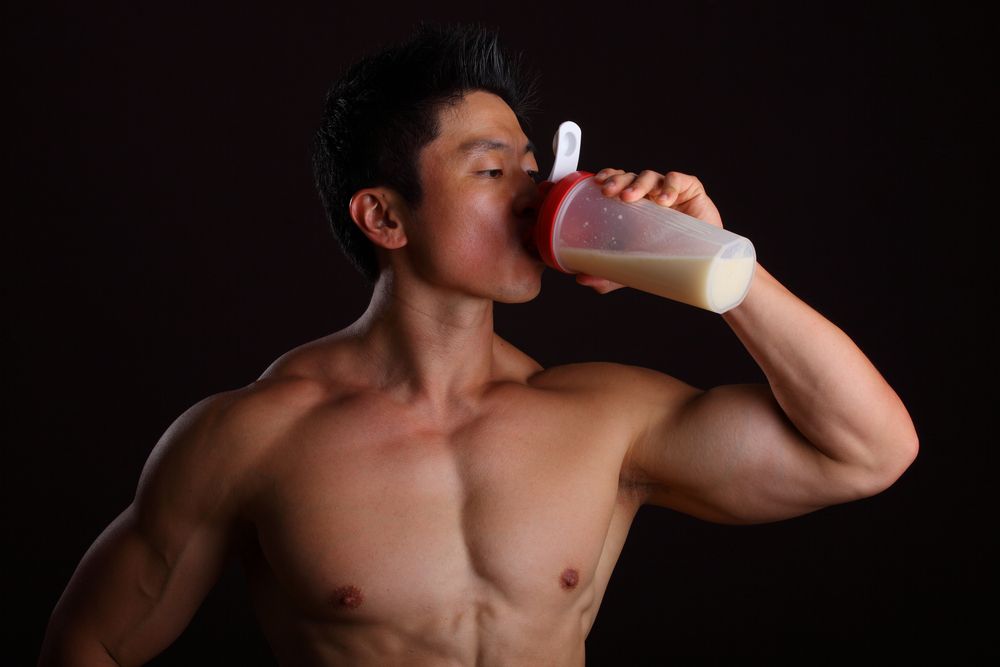
One of the most frequent questions you hear from newbies looking to make some positive changes in their diet and lifestyle is — “Is whey protein good for you?”
The answer is this: it completely depends on the type and quality of the whey protein you’re using. Our modern fitness/weight loss industry is stuffed to the gills with products claiming to have high quality whey protein that can help build or maintain lean mass but it’s simply not true. That’s a fact.
Consider your typical average Joe who weighs 180 pounds but is changing his diet to add 10 pound of lean mass. That means he has to come up with at least 190 grams of protein every day and for most people the most efficient answer is protein powder. Whey protein dominates the more mainstream market, so it’s often the first choice for men; soy being the first choice for women because of the higher estrogen levels.
First, The Ideal Whey: Organic
There’s a number of reasons you want to invest in organic whey protein if you can. Yes, it’s more expensive, anywhere from 10% to 30% more expensive, so it’s a matter of personal preference. However, what you lose in the wallet you gain in fitness results! Prioritize.
- 100% USDA organic or reliably certified through a third party.
- Non-GMO. Keep in mind that in the US roughly 90% of the Soy protein out there (oftentimes mainstream whey proteins contain GMO soy) is GMO.
- It should be a Whey Protein Concentrate vs. Isolate (more on this in a second).
- It should come from cows that never see the inside of a factory farm. Instead you want grass-fed cows that don’t ingest tons of antibiotics or petrol-based chemicals like pesticides, herbicides or fertilizers.
- Even though on many labels it says there’s really no difference, to be safe just avoid cows that have been treated with rBHG or who have gone through what amounts to hormone treatments.
- Anything used to flavor the whey should also be organic rather than a chemical cocktail.
- It should also come without nasty artificial ingredients: sweeteners and preservatives.
Sheesh! That right there is the best. You figure out what’s best for you and it typically comes down to your budget. How much can you afford to spend on your protein requirements?
Whey Protein Concentrate vs. Isolate
Here’s a quote from a NoFinishLineBlog.com called, “Is Your Protein Powder Bad for Your Health?”
“Most whey proteins are processed from ultra-pasteurized milk and many are exposed to acid processing. Heat and acid damages the protein and makes it insoluble in water. This is one of the key ways to differentiate high quality whey protein from inferior ones. But the whey manufacturers know this, and know that insoluble powders are not appealing for a variety of reasons, so they add chemical flavors and detergents to restore flavor and solubility.”
Basically what it comes down to is that isolate (highly processed) causes acidic build up and inflammation, while whole whey protein concentrate doesn’t. Concentrate comes with all the goodies that are stripped away from isolate versions: phospholipids, phosphatidylserine and CLA.
As time goes by high quality protein becomes harder to find and more expensive. It’s out there, but you have to really do your homework and weigh your priorities.
So the short answer is this: Good whey protein concentrate is good for you, while other types of highly marketed whey protein and isolates are not.